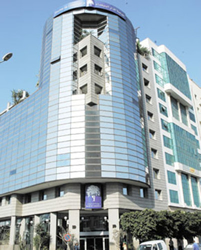Financial Times
More bad news for Morocco this week, after it was banished from the Africa Cup for pushing to delay the football tournament out of Ebola fears. S & P Dow Jones has downgraded the equities market in one of north Africa’s most stable and promising countries from its index of emerging markets to its frontier market index.
Alone among Arab countries, Morocco managed to weather the political tumult of the Arab Spring, even forging an unprecedented compromise with moderate Islamists that maintained stability without resorting to widespread state violence and helped the country maintain an average annual GDP growth rate of 3.5 per cent since 2011.
But in a press release on Wednesday, S & P Dow Jones announced that the phosphate-rich north African equities’ market had been moved from its emerging to frontier index after a review of feedback from investors:
The lack of liquidity in Moroccan equity markets is a significant issue for market participants. The declining trend in market liquidity over the last several years does not align with other emerging markets, making it more appropriate to be classified as a frontier market.
Meanwhile, the equities market of Egypt, struggling to emerge from several years of severe political turmoil, a bloody coup and a smouldering insurgency by a group pledging fealty to the Islamic State of Iraq and the Levant, or Isis, retained its status as an emerging market.
The classification will not scare off investors familiar with the Moroccan market, one of the most open and modern in the Arab world. The Casablanca bourse (pictured above) is considered one of the most sleek in the region. UK trade envoy Lord Colin Sharman on Monday visited the Moroccan capital with a delegation of business leaders seeking potential deals in the country’s booming alternative energy sector.
A recent report by the Oxford Business Group touted Morocco’s decade of economic growth and reforms, including anti-poverty measures which reduced the number of people living on less than $2 a day by two thirds.
But the reclassification may scare off new investors and potential investors and underscore Morocco’s shortcomings, including an inability to expand its equities market. Market capitalisation at the Casablanca bourse stands at $57bn, lower than the $75bn peak it achieved in 2007, before the global financial meltdown. MSCI, another index provider, moved Morocco from its emerging to frontier markets index in June 2013.
An analysis of that move by the World Federation of Exchanges suggested it would actually help Moroccan equities by giving the companies that qualify a higher profile:
Morocco will have a much higher weighting and an increased number of representative stocks after reclassification as a ‘frontier market’. Morocco’s inclusion will automatically generate increased interest in Moroccan stocks and additional capital flows in the short term and on an on-going basis.
With a market capitalisation of more than $11bn, Moroccan phone giant Maroc Telecom will become the largest holding in the MSCI index. The S & P Dow Jones reclassification won’t come into effect until next year – when perhaps Morocco will be permitted to take part in the Africa Cup again.
Borzou Daragahi







